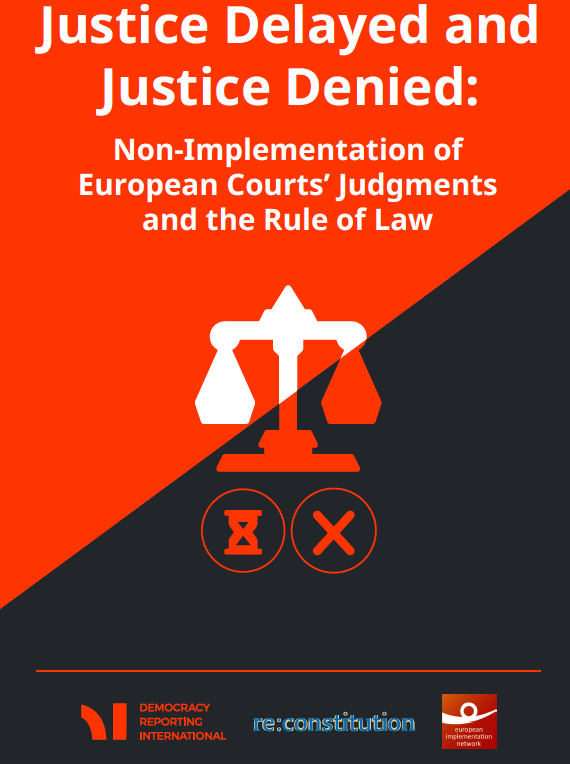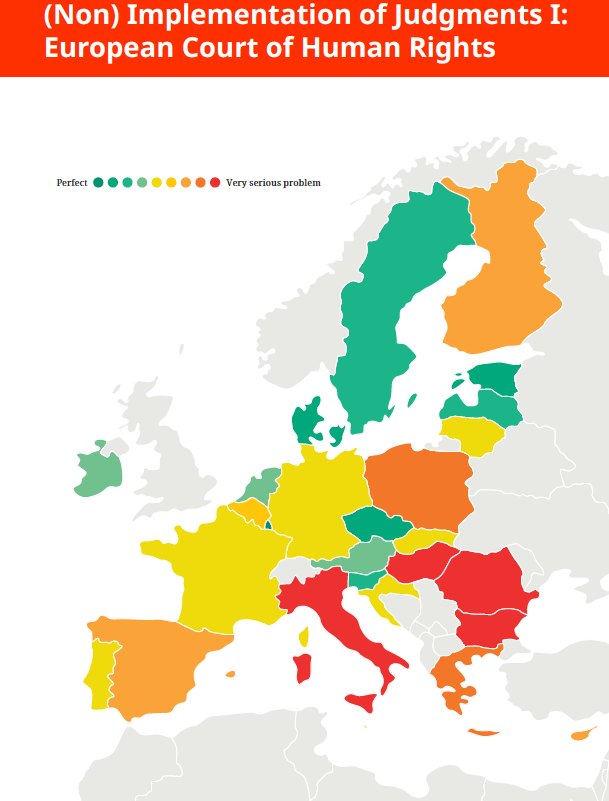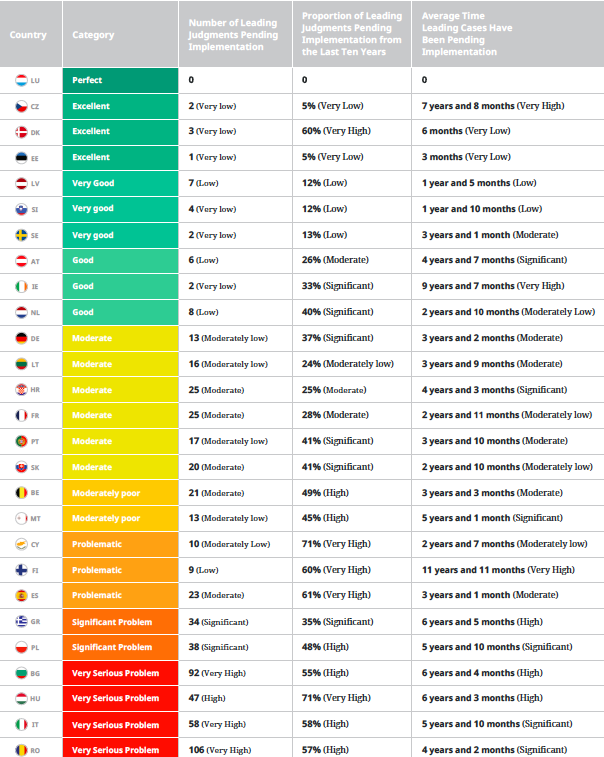Justice Delayed and Justice Denied: Non-Implementation of European Court Judgments and the Rule of Law
Over the past few years, governments, media and citizens have become increasingly alarmed about backsliding on fundamental European values. The European Union (EU) has introduced a series of policy measures designed to halt and reverse the trend. In 2020, the European Commission adopted a new annual rule of law review cycle. The EU institutions also agreed on targeted measures, such as withholding structural funds from countries with severe infringements of the rule of law.
While targeted measures make sense for the extreme cases where governments destroy institutions of the rule of law in a systematic manner, the annual rule of law review cycle should also capture longer-term problems with the rule of law across all Member States, such as the non-implementation of judgments of two key European courts – the European Court of Human Rights and the Court of Justice of the European Union (hereafter, “the European Courts”). This issue has been widely overlooked.
This report reflects the fact that the non-implementation of judgments of the European Courts has become a systemic problem. Some 37.5% of the leading judgments of the European Court of Human Rights (ECtHR) relating to EU states from the last ten years have not been implemented. Each of these judgments relates to a significant or structural problem in the laws or practices of states, often with direct consequences for many citizens. And yet, authorities have not implemented these judgments.
Non-implementation of judgments of the European Court of Human Rights is a problem across the continent. France, Germany, and Sweden all have leading judgments pending implementation for over five years. Over 50% of leading judgments against Italy and Spain are yet to be implemented. Romania and Bulgaria have each failed to implement over 90 leading judgments. Hungary also has a very serious non-implementation problem, with 71% of the leading ECtHR rulings from the last ten years awaiting implementation. Overall, it is notable that the majority of the highest non-implementing countries are also the ones with much broader and systemic rule of law issues, including attacks on the independence of the judiciary and of other oversight institutions.
While there are 602 leading ECtHR judgments pending implementation, the European Commission’s rule of law report only captures a fraction of these cases and does not assess the overall level of non-implementation in each Member State. Our report aims to highlight this issue and advocate for the inclusion of the non-implementation of European Court judgments in the work of the EU Commission.






